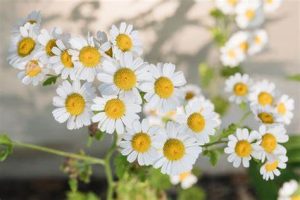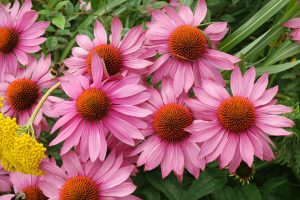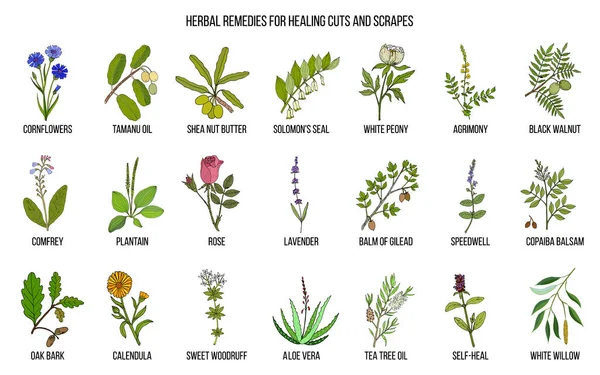Herbal remedies used to be the only type of medical care some people got.
Young or old, it didn’t matter, doctors were too expensive or too far away,
Family remedies were passed down from generation to generation.
Today, we see people turning to natural and alternative treatments with greater frequency,
because they’re dissatisfied with the high costs,
serious side effects,
and “disease-focus” of modern medicine.
Herbal remedies are part of the natural cures that people are researching and adding to their family’s lives.
But are these plant-based remedies safe for children?
They must be, right?
Because they’re natural.
It’s true that herbal remedies have a long history of treating childhood illnesses.
And if they are properly sourced, or grown by you or someone you know,
then they’re free of additives or dangerous chemicals such as pesticides.
However, one size fits all doesn’t apply to natural medicine anymore than it does to traditional medicine.
Each person reacts differently,
and some people have allergies to even the most harmless plant.
This doesn’t mean that you have to give up the idea of treating your child with herbal medicine.
With a little bit of research,
a consultation with your pediatrician,
and observing how your child reacts to the herbs,
you can incorporate a wellness practice which includes natural remedies made from herbs.

Gentle Herbs to Calm Children
The following plants help to relax the nervous system and help soothe anxieties.
They also work well when a child is overtired that they are hyperactive.
They can also be used to help a child rest quietly and fall asleep more easily.
* Chamomile
* Lemon balm
* Spearmint
* Rose petals
* Lavender
* Catnip
Nourishing Herbs for Children
These plants contain high amounts of vitamins, minerals, and other phytochemicals that are easily absorbed by the body.
You can add these to your child’s food to boost their nutrient content.
They will work well in salads, casseroles, and soups.
If your children aren’t fond of tea,
you can use them in infusions
and add them to ice pops, smoothies, and gelatin.
* Raspberry
* Rose hips
* Violet
* Dandelion
* Dry or cooked Nettle
* Oat straw
* Alfalfa
* Seaweed
* Marshmallow
There are excellent books dealing specifically with the proper administering of these remedies.
The most important thing to consider is the dosage.

Herbalist Rosemary Gladstar explains, “my experience has been that almost any herb that is safe for an adult is safe for a child as long as the size and weight of the child are accounted for and the dosage is adjusted accordingly”.
The easiest way to calculate the dosage is to consider that the adult dosage is based on an adult weighing 150 pounds.
Divide your child’s weight by 150, and you’ll be able to determine the appropriate dose.
Benefits
The benefits of treating children with the
Chamomile
are the same as they are for adults.
You’re looking at cost effective, natural options, which have little to no side effects.
They can also provide additional benefits such as boosting your child’s immune system.
Some additional tips:
* There are some herbs which are toxic in large amounts, even to adults, so learn which ones they are.
* Honey shouldn’t be given to children under 1 year of age.
There is a rare form of food poisoning called infant botulism which is potentially fatal.
The spores which are harmful to infants are completely harmless to older children and adults,
as their digestive systems have developed enough to prevent the spores from growing.

* Although research studies haven’t been able to find any link between echinacea and an improved immune system, it remains a popular remedy believed to help the body fight off colds and flus.
Recent studies have found that in children under 12,
echinacea can cause swelling of the face,
breathing difficulties, and rashes.
In a few cases, it led to a life-threatening allergic shock.
Learning to heal yourself and your family using only natural remedies is a rewarding endeavor which will provide you with many benefits.
Just make sure to consult with an experienced herbalist,
your pediatrician,
and read up on the plants and herbs which should and shouldn’t be used on children.
Taking these precautions will ensure that your new lifestyle is appropriate for your entire family.


